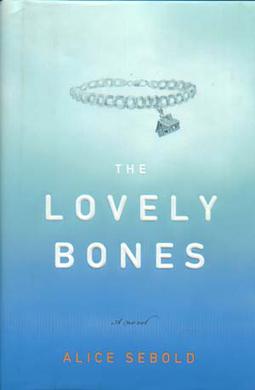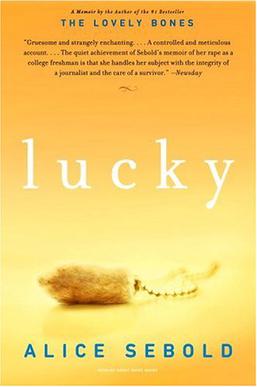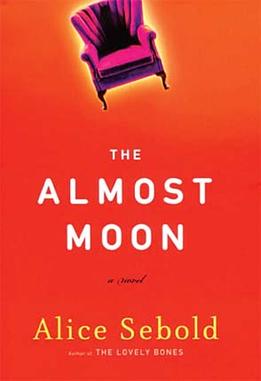
The Central Park jogger case was a criminal case concerning the assault and rape of Trisha Meili, a woman in Central Park in Manhattan, New York, on April 19, 1989. On the night of the attack, dozens of teenagers had entered the park, and there were reports of muggings and physical assaults.
Innocence Project, Inc. is a 501(c)(3) nonprofit legal organization that is committed to exonerating individuals who have been wrongly convicted, through the use of DNA testing and working to reform the criminal justice system to prevent future injustice. The group cites various studies estimating that in the United States between 1% and 10% of all prisoners are innocent. The Innocence Project was founded in 1992 by Barry Scheck and Peter Neufeld who gained national attention in the mid-1990s as part of the "Dream Team" of lawyers who formed part of the defense in the O. J. Simpson murder case.

Hair analysis may refer to the chemical analysis of a hair sample, but can also refer to microscopic analysis or comparison. Chemical hair analysis may be considered for retrospective purposes when blood and urine are no longer expected to contain a particular contaminant, typically three months or less.
Bryony Lavery is a British dramatist, known for her successful and award-winning 1998 play Frozen. In addition to her work in theatre, she has also written for television and radio. She has written books including the biography Tallulah Bankhead and The Woman Writer's Handbook, and taught playwriting at the University of Birmingham.

The Lovely Bones is a 2002 novel by American writer Alice Sebold. It is the story of a teenage girl who, after being raped and murdered, watches from her personal Heaven as her family and friends struggle to move on with their lives while she comes to terms with her own death. The novel received critical praise and became an instant bestseller. A film adaptation, directed by Peter Jackson, who personally purchased the rights, was released in 2009. The novel was also later adapted as a play of the same name, which premiered in England in 2018.

Lucky is a 1999 memoir by the American novelist Alice Sebold, best known as the author of the 2002 novel The Lovely Bones.Lucky describes her experience of being raped and beaten when she was eighteen in a tunnel near Syracuse University where she was a student, and how this traumatic experience shaped the rest of her life. Sebold has stated that her reason for writing the book was to bring more awareness to rape and rape survivors. The memoir sold over one million copies.
The 1991 Austin yogurt shop killings are an unsolved quadruple homicide which took place at an I Can't Believe It's Yogurt! shop in Austin, Texas, United States on Friday, December 6, 1991. The victims were four teenage girls: 13-year-old Amy Ayers, 17-year-old Eliza Thomas, 17-year-old Jennifer Harbison and Jennifer's 15-year-old sister Sarah. Jennifer and Eliza were employees of the shop, while Sarah and her friend Amy were in the shop to get a ride home with Jennifer after it closed at 11:00 pm. Approximately one hour before closing time, a man who had tried to hustle customers in his queue was permitted to use the toilet in back, took a very long time and may have jammed a rear door open. A couple who left the shop just before 11:00 pm, when Jennifer locked the front door to prevent more customers entering, reported seeing two men at a table acting furtively.
Steven Allan Avery is an American convicted murderer from Manitowoc County, Wisconsin, who had previously been wrongfully convicted in 1985 of sexual assault and attempted murder. After serving 18 years of a 32-year sentence, Avery was exonerated by DNA testing and released in 2003, only to be charged with murder two years later.

The Lovely Bones is a 2009 supernatural drama film directed by Peter Jackson from a screenplay he co-wrote with Fran Walsh and Philippa Boyens. It is based on Alice Sebold's 2002 novel of the same name and stars Mark Wahlberg, Rachel Weisz, Susan Sarandon, Stanley Tucci, Michael Imperioli, and Saoirse Ronan. The plot follows a girl who is murdered and watches over her family from "the in-between" and is torn between seeking vengeance on her killer and allowing her family to heal.
Wrongful execution is a miscarriage of justice occurring when an innocent person is put to death by capital punishment. Cases of wrongful execution are cited as an argument by opponents of capital punishment, while proponents say that the argument of innocence concerns the credibility of the justice system as a whole and does not solely undermine the use of the death penalty.

The Innocent Man: Murder and Injustice in a Small Town is a 2006 true crime book by John Grisham, his only nonfiction title as of 2020. The book tells the story of Ronald 'Ron' Keith Williamson of Ada, Oklahoma, a former minor league baseball player who was wrongly convicted in 1988 of the rape and murder of Debra Sue Carter in Ada and was sentenced to death. After serving 11 years on death row, he was exonerated by DNA evidence and other material introduced by the Innocence Project and was released in 1999.
Sara Gruen is Canadian-American author. She is a 2007 recipient of the Alex Award for young adult literature.
This is a list of notable overturned convictions in the United States.

The Almost Moon is the third book and the second novel by the American author Alice Sebold, author of the memoir, Lucky and the best-selling novel The Lovely Bones.The Almost Moon was released by Little, Brown and Company in the United States on October 16, 2007.
This is a list of notable overturned convictions in Canada.

The California Innocence Project is a non-profit based at California Western School of Law in San Diego, California, United States, which provides pro bono legal services to individuals who maintain their factual innocence of crime(s) for which they have been convicted. It is an independent chapter of the Innocence Project. Its mission is to exonerate wrongly convicted inmates through the use of DNA and other evidences.
After a sexual assault or rape, victims are often subjected to scrutiny and, in some cases, mistreatment. Victims undergo medical examinations and are interviewed by police. If there is a criminal trial, victims suffer a loss of privacy, and their credibility may be challenged. Victims may also become the target of slut-shaming, abuse, social stigmatization, sexual slurs and cyberbullying. These factors, contributing to a rape culture, are among some of the reasons that may contribute up to 80% of all rapes going unreported in the U.S, according to a 2016 study done by the U.S. Department of Justice.
Victoria Pedretti is an American actress. Her accolades include an MTV Award, a Saturn Award, and nominations for two Critics' Choice Awards








